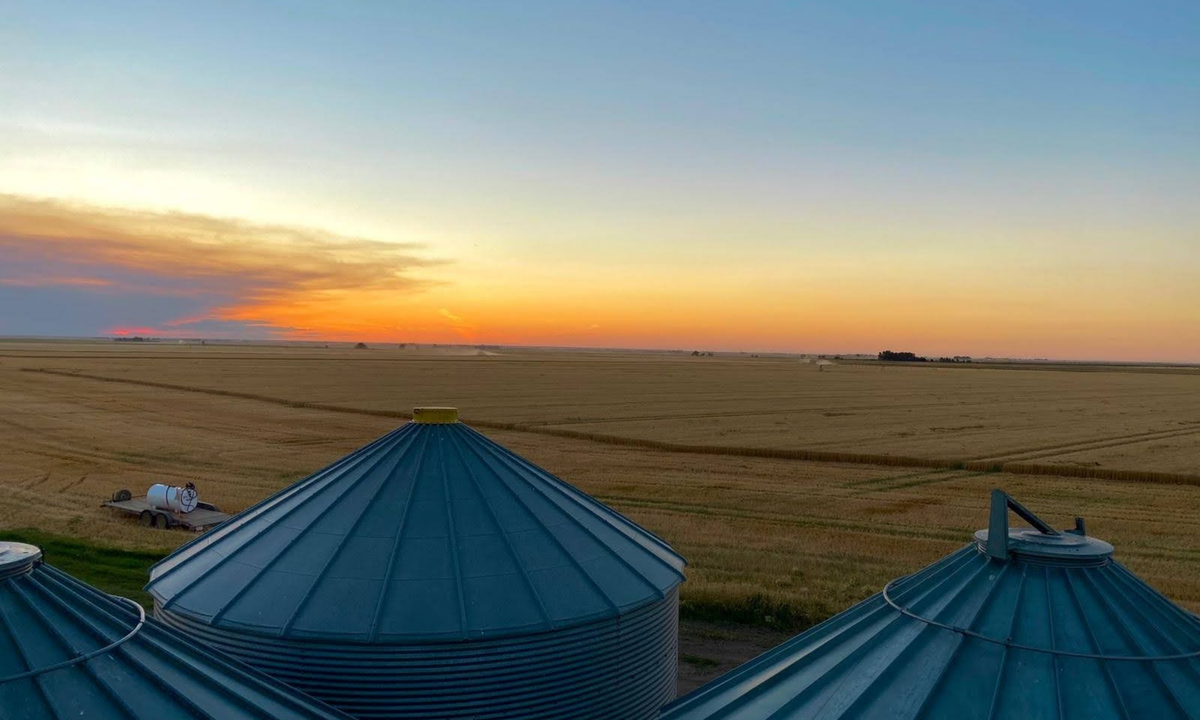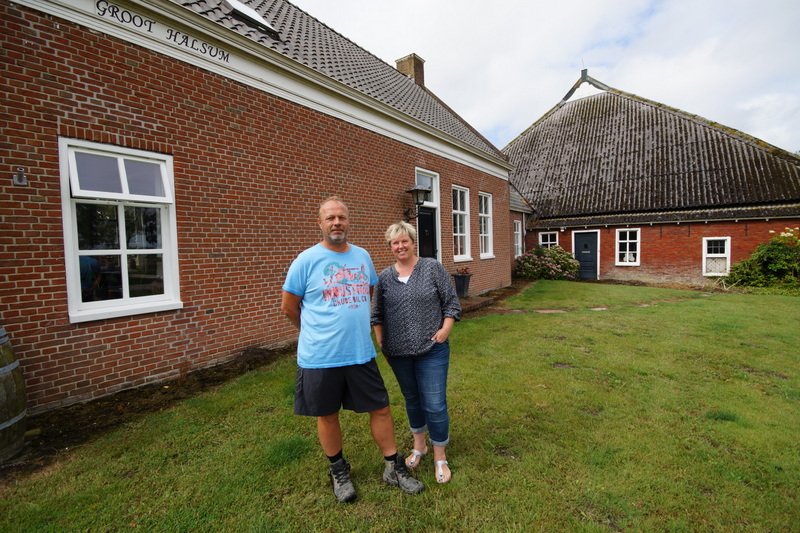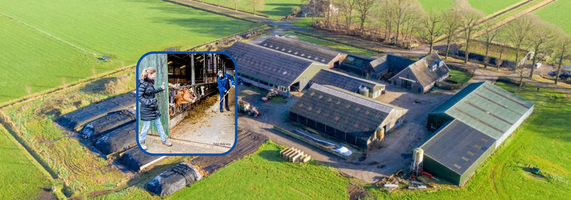Rolling Hills, the new Groningen? You could almost say it, after the enthusiastic interview with Eise and Esther Halsema.
In January 2019 they emigrated to Canada with their sons Daan (21) and Tim (19). They exchanged the parental farm in Kloosterburen for an arable farm in Rolling Hills, located in the southern part of Alberta.
"In this area, you have good quality soil, irrigation options, and the distances are acceptable. It is all just a bit further away than we were used to in Groningen, but that also provides convenience: the plots are large and square, which farming a lot easier and more efficient. On the other hand, it can sometimes take a long time before a mechanic is there or parts are delivered. You really have to plan machine maintenance early," says Eise Halsema. They are all very pleased with housing, life and agricultural entrepreneurship. The only question they ask themselves is: Why haven't we done this before?
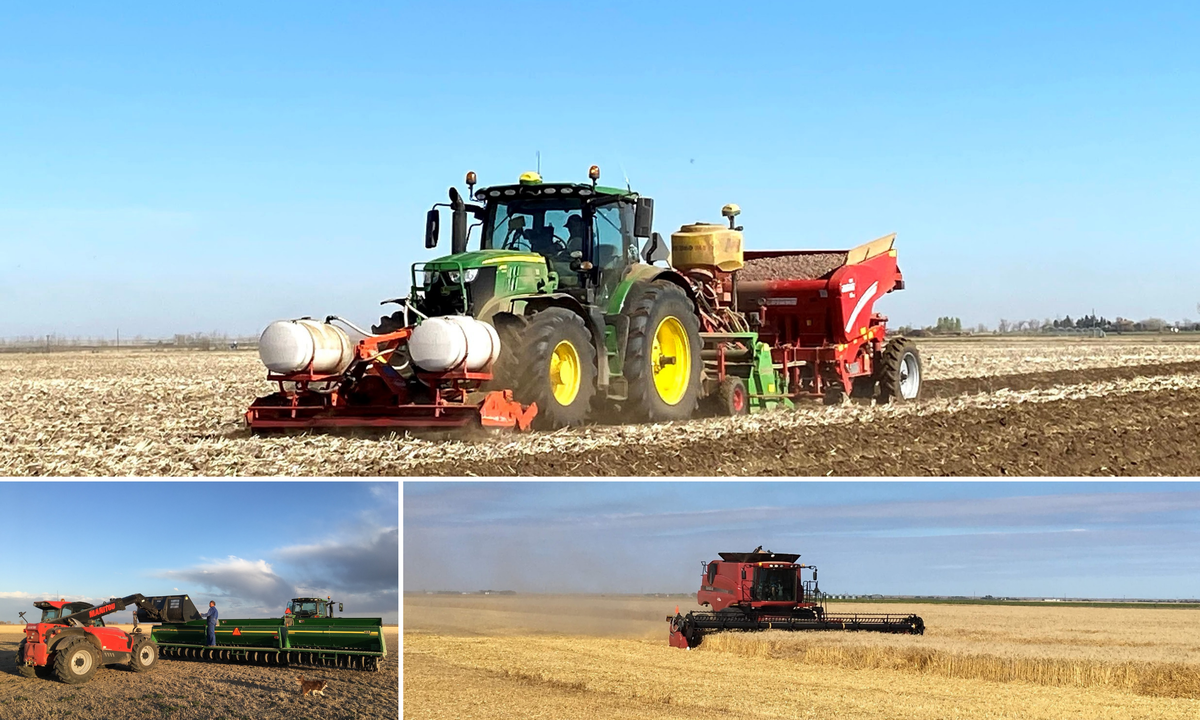
Lots of time for integration
The first year they were in Alberta, Eise and Esther consciously opted for an extensive building plan. Esther: "We only grew grain at the time. This gave us time to get our company off to a good start and to get to know the neighborhood. We participated in almost all the activities in the village. And there is a very active club life in Rolling Hills and the surrounding area with regular bingo evenings, garden clubs, BBQs, golfing, etc. The people are also very hospitable, but here too, if you are open to social contact as a newcomer, then the neighborhood is too.” That the Halsema family is well integrated, was also apparent from the help they received last year when they had to return to the Netherlands due to family circumstances. "Colleague farmers and neighbors were ready to empty the containers and offer other support. Very nice!"
Good connections
The sons Daan and Tim can no longer imagine any other life. Their integration into Canada went very smoothly. They already had a good command of the English language before they came to Canada, and there is a very good connection with other boys from the neighborhood and also from the school. "Daan had actually already finished his studies when we went to Alberta, but he first went to high school for six months for the language and for the contacts. After 1.5 years of high school, Tim continued at the Agricultural college in Olds. He has built up many valuable contacts here not only in the neighborhood but throughout Canada. Daan has been working fully at the company since last year. After his studies, Daan first worked for a while with a colleague, but now there potatoes are grown, his help on the farm is needed," says Esther. The three of them run the arable farm and at peak times they have extra manpower. It was difficult to get there last year because of corona. There is a lot of work here with foreign workers, but they were unable to enter Canada.
From extensive to intensive
Eise and Esther had a clear wish list beforehand. Good quality soil, possibility for irrigation and potato cultivation. Because the supply of such companies in this region is limited and there is a lot of demand, they immediately took action when Ben van Dyk (agricultural broker & emigration counselor who has been working closely with Interfarms since 2021) informed them about the arable farm in Rolling Hills.
The total surface area is 4 quarter - converted 250 ha - good agricultural land with pivots, grain silos, open workshop and a house. The house may not have been the perfect picture, but the ground offered them what they were looking for. Eise was already in Canada a week after Ben's call to look at the company and make the decision. From then on, the Halsema family was able to fully prepare for their emigration.
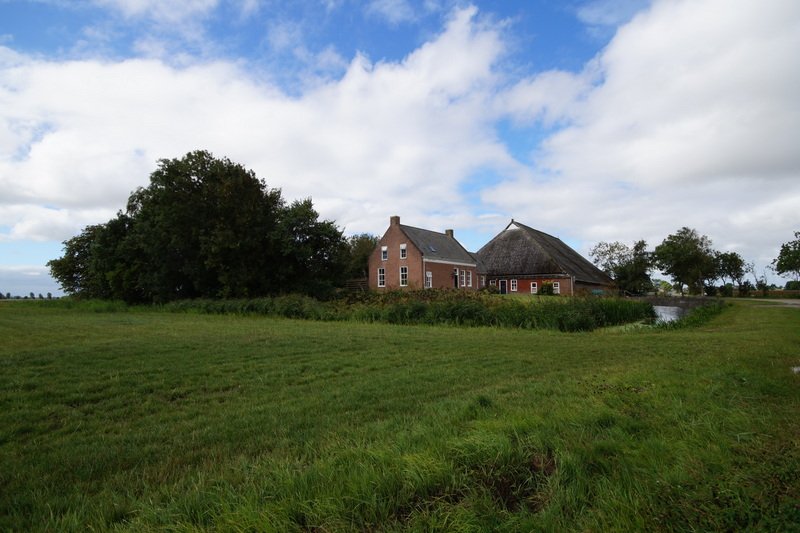
The visa application
The Halsema family received the visa fairly quickly. They had the time with them and they also did everything they could to ensure that this visa process went quickly. For example, in three weeks they had submitted all the necessary papers to us. Ultimately, their visa application took one year. "Halsema's were just in the right time," said Gwenda van Veldhuizen. Gwenda has been working as a visa specialist for the subsidiary Visa4you for over 20 years. "At the moment, however, there is a problem with the entrepreneur visa. This visa program, the so-called 'self-employed visa', has been closed to farmers since 2018. We now have to look for detours to enter Canada. There are provincial possibilities, but these routes are more difficult and take more time.
Tip: be well prepared & ask for support
Frans van de Stroet, colleague of Ben van Dyk, arranged the purchase of the arable farm and further settlement. "Our real estate office has decades of knowledge and experience with agricultural real estate in Alberta and surrounding provinces. A large number of our brokers have their roots in the Netherlands and most of them have an agricultural background. We know the market and what is going on. That is why we were able to act quickly when a suitable company came along.Looking back on the journey of the Halsema family, I can only draw one conclusion, namely that they were one of the easiest emigrants! They were very well prepared, already spoke good English and have invested time in contacting the neighbourhood, colleagues and finding a good accountant!"
Eise: "Our acquaintances, who have been living in Canada for some time, have helped us a lot. My experience is that you should not be afraid to ask for help and that you should not be hesitant to call in specialists. For example, for the shipping of containers. We have outsourced this to an international mover who also has a lot of experience with agricultural machines. The requirements for this are very strict and a lot of paperwork has to be filled in. Another tip for emigrants: Separate your private belongings from the business stuff. After three weeks in Canada, we were able to access our household goods again."
Seed potato cultivation
Halsema's started growing wheat, canola (partly seed), soybeans and maize. From the second year, potato cultivation has been added. Initially they wanted to grow ware potatoes, but it is very difficult to get a contract with chips factories. "As a newcomer you don't just intervene, even if your company is closer to the chips factory than to an existing grower," says Eise. "In addition, the corona situation also played a role, which put pressure on the prices of chips potatoes. We then opted for seed potato cultivation; we were already familiar with this. Some of the sales go through Parkland (part of Agrico) and the vast majority we sell ourselves. Most of it goes directly to consumption growers in Canada. Exporting is also possible; strict rules apply to this. For domestic sales, we can inspect the batches ourselves. For export batches, someone from the CFIA (Canadian Food Inspection Agency) is continuously on the check The CFIA can be compared with the Dutch Potato Inspection (NAK). Another difference with the Netherlands is that you are much less bound by restrictive rules in terms of pesticides. During the growing season we are advised by a resource adviser and we also have an arable specialist who we are watching. We also work with a potato farmer in the area."
What is it like to be an arable farmer in Canada?
Eise: "You have to be flexible. The growing season is unpredictable here. Growth is faster. You can often only start in May and the target date for the harvest is October 1. The first year we already had snow on September 28! Last winter was mild by the way, but we already had a month of February where it froze to 45°C! Furthermore, there is hardly any plowing here. The soil should not be made too fine, there can be a lot of wind damage. Especially on the lighter soils you suffer from erosion "Irrigation is of course also a big difference with the Netherlands, at least for seed potato cultivation. You can irrigate here. That gives harvest certainty. If there is crop/crop damage due to weather conditions, you can fall back on "crop insurance" in Canada. An insurance program for the agricultural sector; the federal and provincial government and the farmer contribute to this. This is a very pleasant arrangement. In the first year we had 30% damage in the beans; thanks to this support We have been reimbursed for this. You notice that in Canada there is a lot of appreciation for the farmer and also for others who contribute to society. A (farmer) friendly country!"
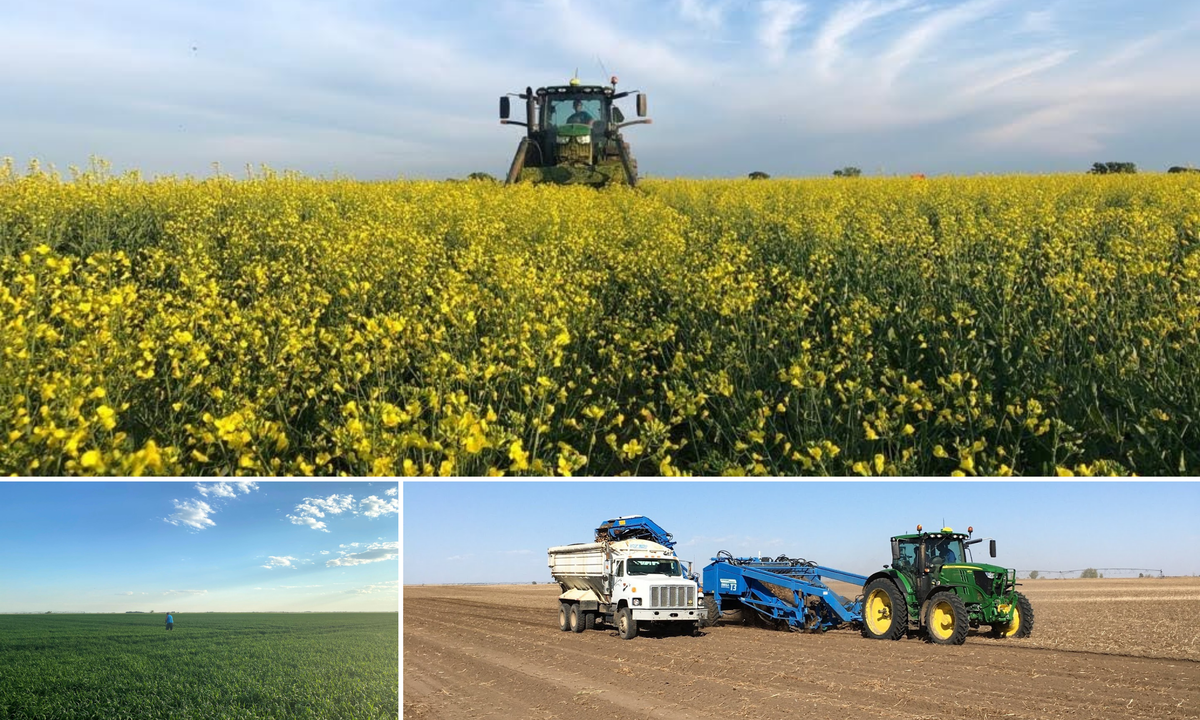
New construction is possible without a permit
Their company location only had an open workshop, which was initially provided with an overhead door and concrete floor. A shed had to be built for potato storage. "Due to the extensive construction plan in the first year, we were able to obtain extensive information," says Esther. "We wanted box storage and not bulk storage. You can grow several potato varieties with box storage, which gives us flexibility in sales. In terms of construction, you can choose between steel construction and timber construction. The climate is very suitable for a storage warehouse with timber construction and in addition it is cheaper. And the great thing about building for agricultural purposes is that no building permit is required." Because the Halsemas are close to a highway, government approval had to be obtained. This was arranged within a few days and cost no more than $25. What does take more time, however, is a permit for gas and electricity. This will take three and a half years. Construction went smoothly. The potato shed of 30 x 60 meters has a capacity of 3,000 tons.
Rolling Hills, the new Groningen!
The area surrounding Rolling Hills and Vauxhall is a beautiful area with lots of fun. It is a close-knit community of 'older' residents and also quite a few 'new Groningers'. It feels like home. The Halsema family is really in the right place. Esther adds; "Our boys recently told us that if we were to decide to go back to the Netherlands one day, they really wouldn't come with us anymore. Nice isn't it!"
